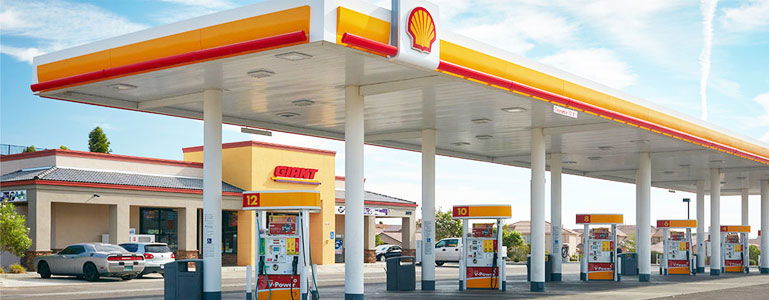You could be fined if you stop at a petrol station for too long
Motorists are being caught out with parking restriction fines when they stop for more than 30 minutes at petrol stations and motorway services.

Fines are being issued to motorists who ‘overstay their welcome,’ to use a cliche, at petrol stations.
The fines are issued to people who stay too long parked up at a petrol station, although they seem to be currently affecting customers of only a limited number of suppliers.

The British Motorcyclists Federation (BMF) reports that BP and Shell have been linked with fines and parking restrictions. Specifically, the BMF says that some petrol stations are limiting people to just 30 minutes parked up before third party parking companies start issuing fines.
“One of our region 7 reps found this out at a BP station which has a little rest area,” the BMF says in a recent article. “These parking charges are usually put in place by a separate parking companies and signage can be very hard to spot, especially at night.
“It is worth checking when parking up on any restrictions, even if the place is well known to you, as sometimes changes are not well publicised and you could end up with a hefty fine.”

Additionally, the BMF reports that there are problems for some drivers and riders of electric vehicles when they arrive in motorway service stations. Here, the parking limit is often two hours, which is more than enough for most, of course, but with EVs things can be more complicated.
When we are talking hours to reach a full charge, a two-hour time limit can become problematic if you arrive at the service station and all of the charging points are taken.
The BMF says that “this is not going to cause an issue to riders, but could do,” and, in fact, increasingly so, theoretically, as increasingly more EVs - of both the two- and four-wheeled variety - are sold in the UK and make their way onto UK roads and motorways.

2035 is a long way off, of course, and in the 12-and-a-half years until then there is plenty of chance for additional legislation to arrive which could help to loosen the restrictions on parking limits, for example.
But, if 2035 is the absolute end date for new sales of non-zero emission two-wheelers in the UK - which, as we wrote yesterday (14 July 2022), is the current proposal of the UK government - as well as for non-zero emission cars in Europe (which will probably impact the UK, too, for manufacturing reasons), insufficient improvement of the facilities and infrastructure to accommodate electric vehicles in the UK will only intensify a problem such as this.

